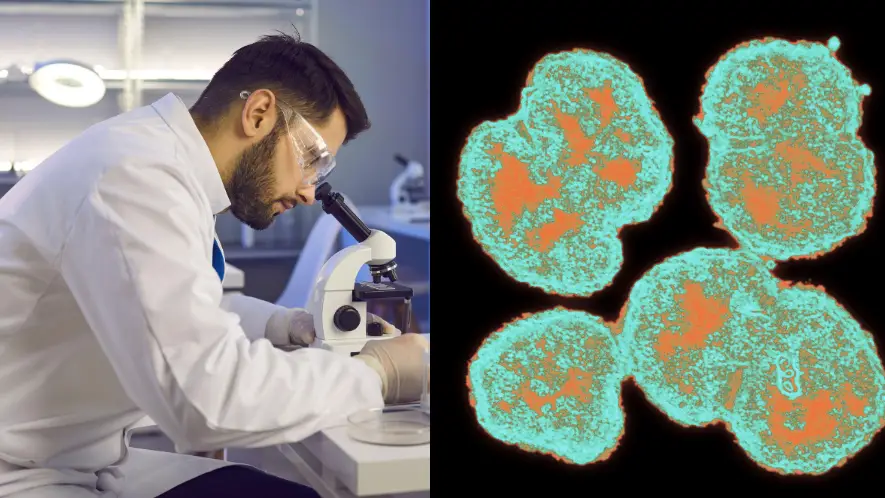
A STI researcher has called for guidelines to be updated after studies indicated gonorrhoea could be spread through kissing.
Ahh, STIs. They're a topic that might make you itchy and uncomfortable, but one that needs to be discussed all the same.
The term for such diseases, which include chlamydia, genital herpes and gonorrhoea, indicates that they're spread through sex - hence 'sexually transmitted' - but there are a few different acts that fall into that category.

Advert
Chlamydia, for example, can be spread through oral sex or even sharing sex toys. As for gonorrhoea, some researchers believe you could catch it from something a lot more innocent.
Professor Eric Chow, of the Melbourne Sexual Health Centre, has been researching STIs for years and has called for an update to guidelines after a review looked into six studies that considered whether kissing with tongues was a risk factor for gonorrhoea and chlamydia.
At the time of writing (24 April), the NHS states that gonorrhoea is 'easily passed through unprotected vaginal, oral or anal sex [or] sharing vibrators or other sex toys that have not been washed or covered with a new condom each time they're used'.

The site adds: "Chlamydia cannot be passed on through casual contact, such as kissing and hugging, or from sharing baths, towels, swimming pools, toilet seats or cutlery."
However, Chow's review determined that snogging did raise the risk of becoming infected with gonorrhoea. This was not the case for chlamydia.
Speaking to MailOnline, the researcher said: "We think it is possible to catch gonorrhoea via kissing. I think the guidelines should be updated."
The review came after a study published in July analysed the sexual history and STI records of more than 2,000 gay and bisexual men, and found a link between kissing and gonorrhoea.
Writing in eClinicalMedicine at the time, the team wrote: "We found oropharyngeal gonorrhoea was associated with exposure to a partner's mouth through kissing."

The kiss has to be a bit more than an innocent peck though, as Chow has previously told BuzzFeed News: "There needs to be enough time to have saliva exchange between the individuals. Like a French kiss."
In response to the findings, a spokesperson for the British Association for Sexual Health and HIV told MailOnline: "New research into the transmission of STIs is important for our understanding of how they spread and, in this instance, how the transmission risk of gonorrhoea may be reduced.
"Gonorrhoea is primarily passed through unprotected oral, vaginal, or anal sex. Whilst there may be cases where it has passed from mouth to mouth through kissing, this is probably very uncommon.
"This research highlights the importance for individuals to get tested regularly, especially after condomless sex with a new or casual partner.
"It remains essential for everyone to have access to high quality sexual health services to help keep you and your sexual partners safe."